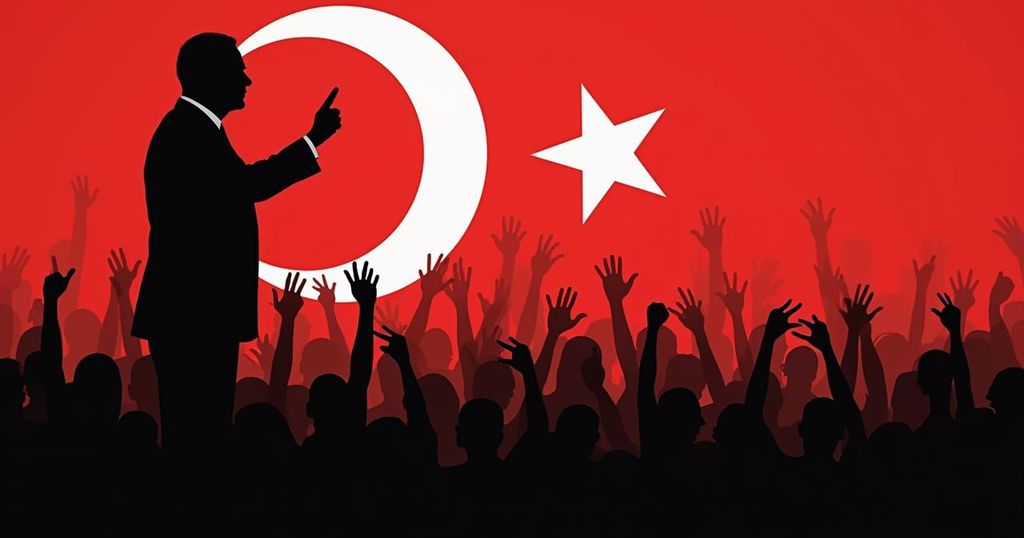Tunisian President Kais Saied has been re-elected for a second term, securing 90.7 percent of the votes amid a low voter turnout of 28.8 percent, the lowest since the 2011 revolution. His administration faces accusations of undermining democratic progress and imprisoning political opponents. Following his win, Saied emphasized his commitment to eliminating corruption and reinforcing national integrity.
Tunisia’s President Kais Saied has secured re-election for a second term in the recent presidential election, achieving an overwhelming 90.7 percent of the votes cast, as per the announcement from the Independent High Authority for Elections in Tunisia (ISIE) on national television. The election, held on Sunday, saw a voter turnout of only 28.8 percent, marking the lowest participation rate since the nation’s revolution in 2011. The Commission’s representative, Mohamed Tlili Mansri, had initially anticipated a turnout nearing 30 percent. At 66 years of age, President Saied faced competition from two opponents—Zouhair Maghzaoui, the leader of the Chaab Party, who has been an ally turned critic, and Ayachi Zammel, a businessman whose candidacy was significantly undermined after his recent imprisonment. Since ascending to power in 2019, Saied has been accused of suppressing political dissent through a series of arrests targeting key opposition figures. Tunisia has been viewed as a significant success story following the “Arab Spring” uprisings, transitioning toward a competitive, albeit imperfect, democracy after an era marked by authoritarian rule. However, human rights organizations suggest that Saied’s administration has systematically dismantled many of the democratic reforms instituted after the revolution, removing critical institutional checks on executive power. Notably, prominent leaders from leading opposition parties have been imprisoned, deterred from backing any candidates in the election. The situation is further complicated by the absence of several potential contenders, many of whom are currently incarcerated due to politically motivated charges. In 2021, President Saied took drastic steps by dissolving the elected parliament and rewriting the constitution, actions characterized by observers as a coup. Nonetheless, President Saied has maintained that he is combating a “corrupt elite” and traitors within the political establishment. Following his electoral victory, Saied reiterated his commitment to national renewal, stating, “This is a continuation of the revolution. We will build and will cleanse the country of the corrupt, traitors, and conspirators.”
The recent presidential election in Tunisia represents a crucial moment in the country’s post-revolution political landscape. Since the 2011 Arab Spring, Tunisia had been celebrated for its strides towards democratic governance, contrasting sharply with its regional counterparts. However, the re-election of President Kais Saied amidst a backdrop of low voter turnout and widespread imprisonments of opposition leaders raises concerns about the future of democracy in Tunisia. Saied’s past actions, particularly his consolidation of power following the dissolution of parliament and modifications to the constitution, have drawn significant scrutiny. His administration’s approach toward dissenting voices indicates a shift from democratic developments to an increasingly authoritarian stance that jeopardizes the political pluralism achieved after the 2011 uprising.
President Kais Saied’s overwhelming victory in the Tunisian presidential election, set against a record-low voter turnout and significant political repression, marks a defining moment for the nation’s political trajectory. With his administration facing allegations of dismantling democratic gains, the implications of Saied’s re-election extend beyond electoral numbers, potentially signaling a regression towards authoritarianism. As Tunisia navigates these challenges, the international community remains attentive to the evolving dynamics of governance, civil liberties, and political discourse within the country.
Original Source: www.aljazeera.com






